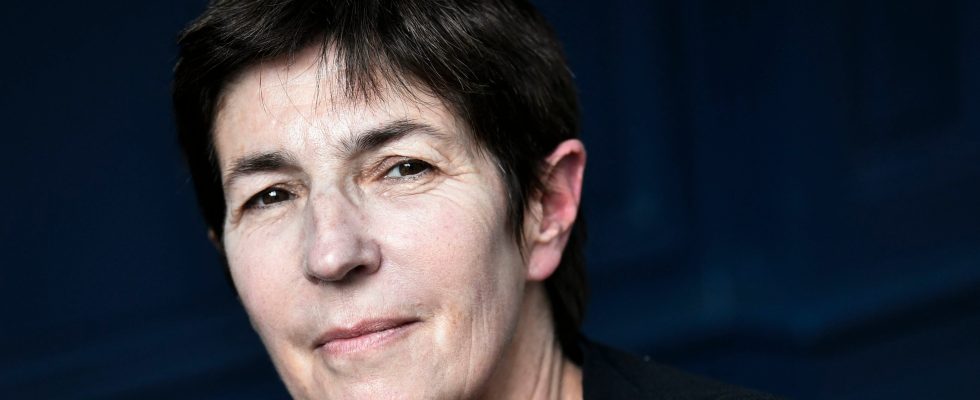There is a great moment of literature in Christine Angot’s film, A family, unless it is just a moment of cinema in the writer’s epic: she is filmed by her team at the bottom of a building, she turns around, hesitates, comes and goes in front of the door. enters, approaches the intercom, speaks to her cameraman, her assistant, what to do, she asks herself, I’m going, I’m not going, could her assistant go in her place, ultimately no, she goes, she presses the intercom button. We wait. A woman answers. Angot introduces himself: it’s me, it’s Christine. Silence. Exchange of a few words that I no longer remember, and the door opens. Christine Angot enters, followed by her team, her, image, at least three or four people who take the stairs, or the elevator, and find themselves in front of the apartment door.
Christine Angot rings. The woman opens and discovers, stunned, that Christine is not alone, there is the whole team, and the camera is rolling, and Angot who wants to enter, the other pushes her away, Angot puts his foot in the door, he there is really a fight between the two women, screams, Angot is the strongest, the most determined, the youngest, the woman must be over 70 years old, Christine Angot manages to enter, but that is not enough for her, she wants all of this to be filmed, she calls the team, asks them to come in, the woman refuses, refuses, it all happens very quickly and I don’t know at what point we understand that this woman is the in-law. mother of Christine Angot, her father’s wife and, for years, Angot has been asking for this meeting which, according to her, has always been refused to her. She has questions to ask him, reproaches to make, explanations to obtain, but, in front of the camera, she orders her team to enter. They hesitate, they are still in the process of violating a home, was it planned like that, certainly not, but they are there for that, so they obey, the image and the sound, they film both women arguing, venting their quarrel. Why didn’t you say anything, shouts Angot, why did you let it happen? I saw nothing, knew nothing, the mother-in-law defends herself, I am on your side, she says. Is she saying I’m a victim like you? Maybe not, but it comes down to that, victim of the husband she had who slept with her daughter. In secret. For years. The best of men doing the worst. They shout for a while, then they calm down, until they agree to sit down in the living room to talk.
I don’t remember if there are two cameras, one on Angot, one on the mother-in-law, when it’s loud, in the cinema, you forget that you’re at the cinema. They talk. Violence is defeated. The physical violence of the intruder, the moral violence of the blind man who refused to answer and who agreed to answer her husband’s daughter. To respond to the accusation: why did you never say anything? I didn’t know, I didn’t see. OK. But afterwards, when it was in the books, when it was on TV, when the thing was publicized, as they say, what was his silence, if not complicity?
The woman does not deny what Christine accuses her father of, but even today she cannot understand it. The father denied it until Alzheimer locked him in his denial and protected him. He has since died. And the widow still doesn’t know what to say about it. It’s already that. Suffice it to say, she didn’t know what to say. Now, after this intrusion, what does Christine expect from her father’s wife? Nobody knows very well. It’s not a police investigation, it’s a film, almost a detective film. With this prodigious sequence where the violence of family silence is destroyed. It’s almost melodious. It is. And that’s enough to make it a hell of a film. As if the writer had found in the cinema what his resentment stood in the way of, the words of the other.
.
